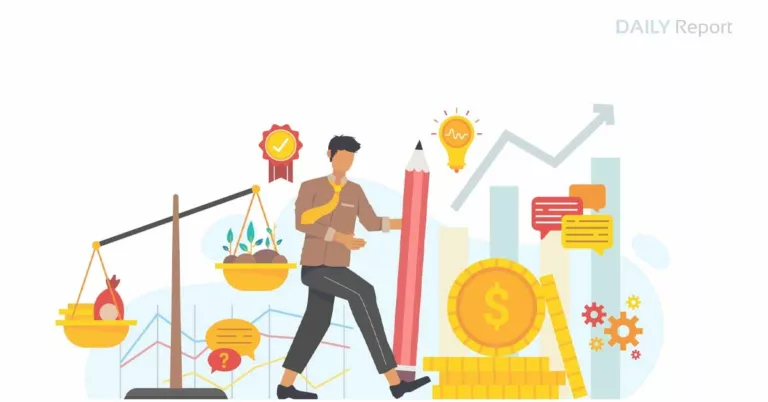Mastering Personal Finance: Tips and Tricks 2023
Introduction
Personal finance is an essential aspect of everyone’s life. It involves managing your money effectively to achieve financial stability, security, and ultimately, your financial goals. Whether you want to save for retirement, buy a new house, or pay off debt, mastering personal finance is key. In this blog post, we will explore some valuable tips and tricks to help you take control of your finances and build a secure future.
1. Create a Budget
The first step towards mastering personal finance is to create a budget. A budget provides you with a clear overview of your income, expenses, and savings goals. Start by tracking your monthly income and categorizing your expenses. Allocate a portion of your income towards essential expenses like housing, utilities, and groceries. Set aside a portion for discretionary expenses such as dining out or entertainment. Finally, make sure to allocate a portion towards savings and investments. Regularly review and adjust your budget as needed to stay on track.
2. Track Your Expenses
To gain better control over your finances, it’s crucial to track your expenses. Keep a record of every dollar you spend, whether it’s through an app, spreadsheet, or a dedicated expense tracker. By analyzing your spending habits, you can identify areas where you can cut back and save more money. It also helps you stay accountable and avoid unnecessary impulse purchases.
3. Reduce Debt
Debt can hinder your financial progress, so it’s important to make efforts to reduce and eliminate it. Start by listing all your debts, including credit card balances, student loans, and personal loans. Focus on paying off high-interest debts first while making minimum payments on others. Consider debt consolidation or refinancing options to lower interest rates. Create a debt repayment plan and stick to it, allocating a portion of your budget towards debt repayment each month. As you pay off debts, the extra money can be allocated towards savings and investments, accelerating your journey towards financial freedom.
4. Save for Emergencies
Life is unpredictable, and unexpected expenses can arise at any time. That’s why it’s crucial to build an emergency fund. Aim to save at least three to six months’ worth of living expenses in a separate savings account. This fund will provide a safety net during challenging times, such as job loss or medical emergencies, and prevent you from falling into debt.
5. Set Financial Goals
Having clear financial goals is essential for staying motivated and focused on your personal finance journey. Determine what you want to achieve in the short term and long term. It could be saving for a down payment on a house, starting a business, or funding your children’s education. Break down your goals into smaller, achievable milestones and set a timeline. Regularly review your progress and make adjustments as necessary to stay on track.
6. Invest Wisely
Investing is a powerful tool for growing your wealth over time. Research and educate yourself about different investment options, such as stocks, bonds, mutual funds, or real estate. Consider your risk tolerance, investment horizon, and financial goals when choosing investments. Diversify your portfolio to spread risk and seek professional advice if needed. Remember that investing is a long-term game, and patience and consistency are key.
7. Live Below Your Means
One of the most important principles of personal finance is to live below your means. It means spending less than you earn and avoiding unnecessary debt. Practice frugality by distinguishing between needs and wants. Look for ways to cut expenses, such as negotiating bills, cooking at home instead of eating out, or using coupons and discounts. By living below your means, you free up resources to save, invest, and achieve your financial goals faster.
8. Increase Your Income
While controlling expenses is important, increasing your income can significantly impact your financial situation. Look for opportunities to enhance your earning potential. It could be through advancing in your career, acquiring new skills, or starting a side hustle. Explore ways to monetize your hobbies or talents. Invest in your education and professional development to open doors to higher-paying opportunities.
9. Automate Savings and Bill Payments
Automating your savings and bill payments is a smart strategy to stay consistent and disciplined with your finances. Set up automatic transfers from your paycheck to your savings account or investment accounts. This way, you prioritize saving before you have a chance to spend. Also, automate bill payments to avoid late fees and penalties. Use technology to your advantage and simplify your financial management.
10. Continuously Educate Yourself
Personal finance is a vast subject, and there’s always something new to learn. Take the time to educate yourself about money management, investing, taxes, and other financial topics. Read books, follow reputable financial blogs and podcasts, and attend workshops or webinars. By expanding your knowledge, you become empowered to make informed financial decisions and adapt to changing economic circumstances.
Conclusion
Mastering personal finance is a lifelong journey that requires discipline, patience, and continuous learning. By implementing these tips and tricks, you can take control of your finances, achieve your financial goals, and build a secure future. Remember, everyone’s financial situation is unique, so personalize these strategies to fit your needs and priorities. Stay committed, stay focused, and watch your financial well-being thrive.







